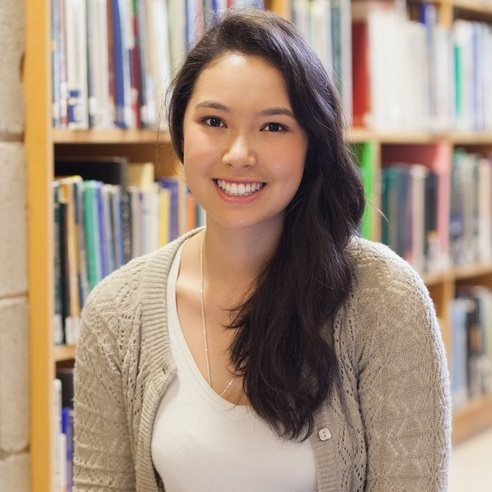find your perfect postgrad program
Search our Database of 30,000 Courses
Masters Degree in Linguistics
Find postgraduate programs in LINGUISTICSLinguistics – one of the social sciences – is the study of the science of languages. It involves detailed analysis of how languages have evolved over time, how they are related to one another, the correlation between sound and meaning, and many other intricate and complicated aspects. For those students who wish to explore the world of languages at large, a Masters Degree in Linguistics is very enlightening, besides developing expertise in the subject, it involves the use of several other fields of study, such as psychology, sociology and anthropology, to study the nuances of language development in depth. This involves instruction in subjects like psycholinguistics, behavioural linguistics, sociolinguistics, computational linguistics, theoretical linguistics, philosophical linguistics, historical linguistics and comparative linguistics.
Linguistics also covers a detailed study of the structure of language components such as phonetics, syntax, grammar, phonemics, semantics, functional grammar, dialectology, lexicography, morphology, typology, orthography, stylistics, structuralism and rhetoric. One also gets to master the know-how of applications to artificial intelligence, in keeping with the demands of technological invasion in everyday life. The masters course will impart a basic foundation in linguistics. It will also provide training in linguistics analysis, methods of research, and application of skills to interpret linguistic data. Many universities in the UK have facilitated masters in linguistics as a full-time course or part-time course, and also through distance learning.

Eligibility requirements
Students wishing to study a Masters in Linguistics should normally have at least an upper second class honours degree (2.1), or the international equivalent, in a relevant subject – this could include classics, modern foreign languages, psychology, and most of the social sciences including sociology, anthropology, archaeology, history and English. It is also advisable to have good English language skills and some experience of statistics.
Duration & assessment
A full-time Masters in Linguistics should take one year to complete and will probably be divided into two terms with core and selective modules. The core subjects are covered in the first term and generally would involve studies in the areas of phonetics, semantics, syntax and sociolinguistics. The second term usually comprises a specialised masters program wherein the students can choose two subjects to specialise in, such as phonetics and phonology; and syntax and semantics. The whole masters program culminates with a dissertation or presentation by the student, based on research conducted on a selected topic under the guidance of tutors or mentors. Assessment is spread out over the terms and is carried out through a series of assignments, essays, projects and, of course, dissertation and research.
Tuition fees
The fee structure depends upon factors such as the type of course studied – as in full time, part time or distance learning. Further, it is slightly different (usually more expensive) for overseas students then it is for home students. Scholarships and grants can be applied for to help cover the costs of the tuition fees, detailed information for which will be specified by every university individually. Postgraduate linguistics students can also apply for one of our Postgrad Solutions Study Bursaries worth £500 each.
Entry requirements
A student seeking to study for a postgraduate degree in linguistics in the UK should be a graduate in any discipline eligible for application. For foreign students who hail from non-English speaking countries, evidence supporting minimum English language requirements has to be produced. An IELTS score of 7 in both the written and oral assessment components, or a TOEFL score of 96, with a minimum of 24 in writing and speaking are acceptable.
 Student case study
Student case study
Ghazaleh Kazeminijad, an international student of linguistics, was interested in pursuing a project in machine-based translation that can bridge current gaps between Farsi – her first language — and English. “I am interested in improving the weakness in translation between this language pair,” she explains. “So, I decided to do something about it.” She took up computational linguistics for her masters in order to realise her goal.
Career prospects
One of the most attractive careers for a postgraduate in linguistics is teaching. It is a good opportunity to interact with and mould young people with a keen interest in languages. With a fairly good salary and regular summer and winter breaks, teaching can prove to be a fruitful career for those with a passion for languages.
Interpreters and translators are in high demand in today’s shrinking world. Governments require communicators to interact with personnel at multinational levels. Private companies, international agencies and non-profit organisations also require people with multi-linguistic skills to enable effective communication. Interpreters are also useful for security purposes, thanks to the increased threat of terrorism spreading around the world. Trained linguists can discreetly interpret cryptic data broadcast through communication and navigation systems.
Speech and language therapy is yet another area where good knowledge of linguistics is mandatory. A deep understanding of the nuances of language is necessary before one can attempt to correct or improve another person’s vocabulary. Many lingual problems such as dyslexia and stammering can be overcome by using the skills of a trained therapist.
Editing and proofreading is an area where a degree in linguistics can be put to good use. Many well-known books and works by famous authors in native languages are being translated into English or into other languages. Here again, a deep understanding of the native language as well as English is required for conveying the intended meaning without distortion.
With so much potential, a masters degree in linguistics is bound to provide a fruitful and interesting career path.
Find postgraduate programs in LINGUISTICSRelated articles
Postgraduate Programs In Languages, Literature & Area Studies

